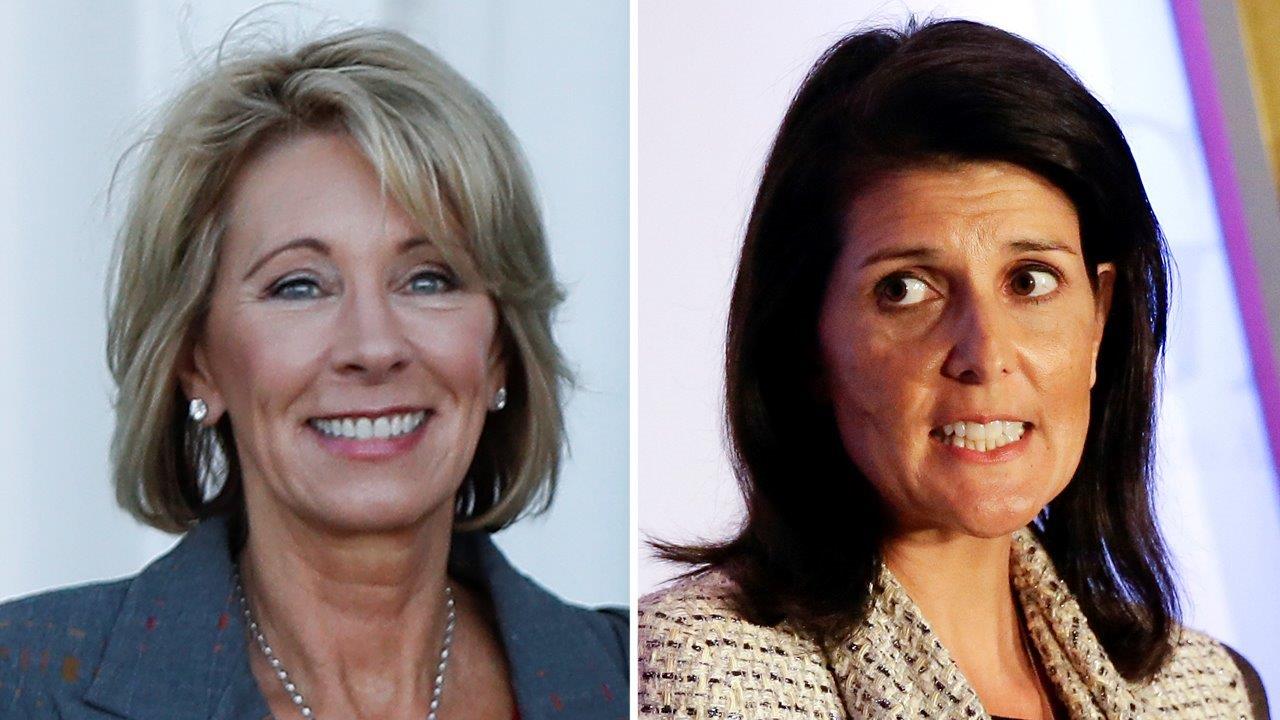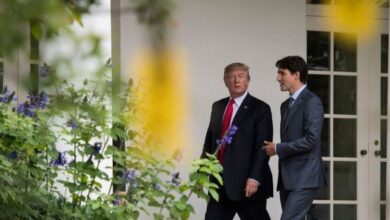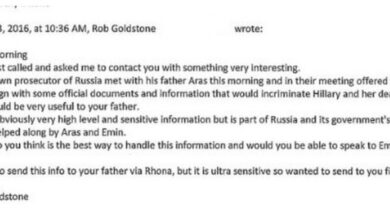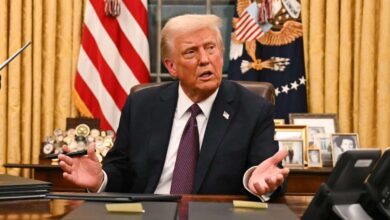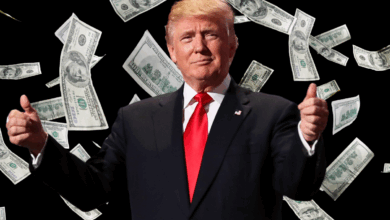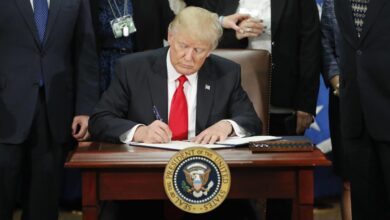Trump Outsider Cabinet Picks Support and Scrutiny
Trump outsider cabinet picks support sparks debate, prompting scrutiny of unconventional choices in leadership. This deep dive examines the individuals selected, their backgrounds, public reactions, and the lasting impact on policy and governance. We’ll explore the motivations behind these appointments, analyze their performance, and compare them to historical precedents.
The article delves into the diverse backgrounds of these appointees, highlighting their non-traditional political experiences and the varied reactions they generated. Public perception is a key aspect, and the article will cover criticisms and praises, offering supporting evidence for each viewpoint.
Overview of Trump’s Outsider Cabinet Picks
Donald Trump’s 2017 cabinet appointments sparked considerable interest due to the significant number of individuals selected from outside traditional political circles. This approach, often termed “outsider” appointments, aimed to inject new perspectives and potentially more business-oriented approaches into the administration. This unconventional strategy, however, also raised questions about the effectiveness of individuals with limited political experience in handling the complexities of government.
Analysis of Outsider Cabinet Members
This section examines the backgrounds and positions of key cabinet members who were perceived as “outsiders,” highlighting their non-traditional political experiences. Their selections provided a contrast to the typical political appointees, often with extensive government or political backgrounds.
| Name | Background | Position | Description |
|---|---|---|---|
| Mike Pompeo | Former Director of the Central Intelligence Agency (CIA) and Congressman | Secretary of State | A career diplomat and politician, previously serving in the House of Representatives. He brought a foreign policy background to the position. |
| Betsy DeVos | Educator and philanthropist, involved in education advocacy groups | Secretary of Education | A prominent figure in the education reform movement, lacking direct prior experience in government. Her appointment generated significant debate due to her limited government experience. |
| Steven Mnuchin | Investment banker | Secretary of the Treasury | A Wall Street executive with extensive experience in finance. His appointment highlighted a preference for private sector expertise in a key economic role. |
| Wilbur Ross | Businessman and investor | Secretary of Commerce | A prominent investor with a substantial background in business. His experience was seen as relevant to the Commerce Department’s role in promoting economic growth. |
| Ben Carson | Neurosurgeon and urban development advocate | Secretary of Housing and Urban Development (HUD) | A prominent physician and advocate for urban revitalization, he had no prior government experience. His selection represented a departure from traditional political backgrounds. |
Motivations Behind Trump’s Choices
Trump’s rationale for selecting these “outsiders” likely stemmed from several factors. He may have sought individuals who could bring fresh perspectives and a different style of governance. His preference for business leaders could also have been driven by a desire to implement policies aligned with a business-oriented approach. Furthermore, these selections potentially aimed to appeal to voters who felt disenfranchised with traditional politics.
Differences from Typical Political Appointees
The backgrounds of these individuals significantly differed from typical political appointees. Traditional appointees often possess extensive political experience, holding prior positions within government or political parties. Conversely, the “outsiders” brought unique backgrounds in business, finance, or other sectors. This contrasted sharply with the usual experience profiles of political appointees.
Public Perception and Reactions
The selection of outsider cabinet picks by President Trump sparked a wide range of reactions, from enthusiastic support to intense criticism. These individuals, often lacking traditional political experience, brought a unique perspective to the administration but also raised concerns about their qualifications and suitability for such high-level roles. Public perception was largely shaped by pre-existing biases and the political climate of the time.
While some are praising Trump’s outsider cabinet picks, it’s interesting to see how initiatives like the San Jose incentive program, which will kickstart construction of a large housing development ( san jose incentive program will kickstart construction of large housing development ), are generating similar enthusiasm for a fresh approach. Ultimately, the success of these outsider picks will depend on their ability to deliver on their promises, just as the San Jose program’s success will hinge on delivering the promised housing.
Public Response to Outsider Cabinet Picks
The public response to Trump’s outsider cabinet picks was diverse and often polarized. Supporters lauded the selections as a fresh approach to government, emphasizing the promise of innovative ideas and a break from traditional political structures. Conversely, critics raised concerns about the lack of experience and expertise among these appointees, questioning their ability to effectively manage complex government responsibilities.
This division reflected the broader political divide in the country at the time.
Range of Opinions Expressed by the Public and Media
The media presented a wide spectrum of opinions regarding the outsider cabinet picks. Some outlets highlighted the potential benefits of bringing in new perspectives, while others focused on the potential risks associated with a lack of traditional governmental experience. Public opinion polls, while not always conclusive, generally showed a significant partisan split in reactions. Social media platforms also played a role in disseminating and amplifying both positive and negative commentary.
Common Criticisms and Praises of Selections
Common criticisms centered on the perceived lack of qualifications and experience among the appointees. Questions were raised about their preparedness to handle the demands of high-level government positions. Supporters, on the other hand, often praised the outsider perspective, arguing that these selections offered a fresh approach and potentially more innovative solutions. They also emphasized the importance of bringing in individuals with diverse backgrounds and perspectives.
Reasons Behind Different Reactions
The varied reactions stemmed from differing political ideologies, personal values, and perceptions of the candidates’ qualifications. Those who supported the selections often viewed them as a necessary break from the status quo, while critics worried about the potential for incompetence and mismanagement. Political affiliations, pre-existing biases, and the political climate of the time also played a crucial role in shaping public opinion.
Comparison of Different Viewpoints
| Viewpoint | Arguments | Supporting Evidence |
|---|---|---|
| Support | Outsider picks bring fresh perspectives and innovative ideas. They offer a break from traditional politics. | Supporters often pointed to the potential for fresh approaches and the ability to think outside the box. Articles in support of the selections frequently emphasized this. |
| Criticism | Lack of experience and qualifications raises concerns about competence and effectiveness in handling complex government responsibilities. They might be unprepared for the demands of the job. | Critics often highlighted instances where the appointees’ decisions or actions appeared inconsistent with established procedures or best practices. News reports and analyses frequently highlighted these concerns. |
| Neutral/Cautious | The selections represent a gamble. It remains to be seen whether their unique backgrounds will lead to positive outcomes. Concerns exist about both the potential benefits and drawbacks. | Articles presenting a balanced view acknowledged both the promise and the risks of the selections. They often emphasized the need for careful observation and evaluation of the appointees’ performance. |
Impact on Policy and Governance
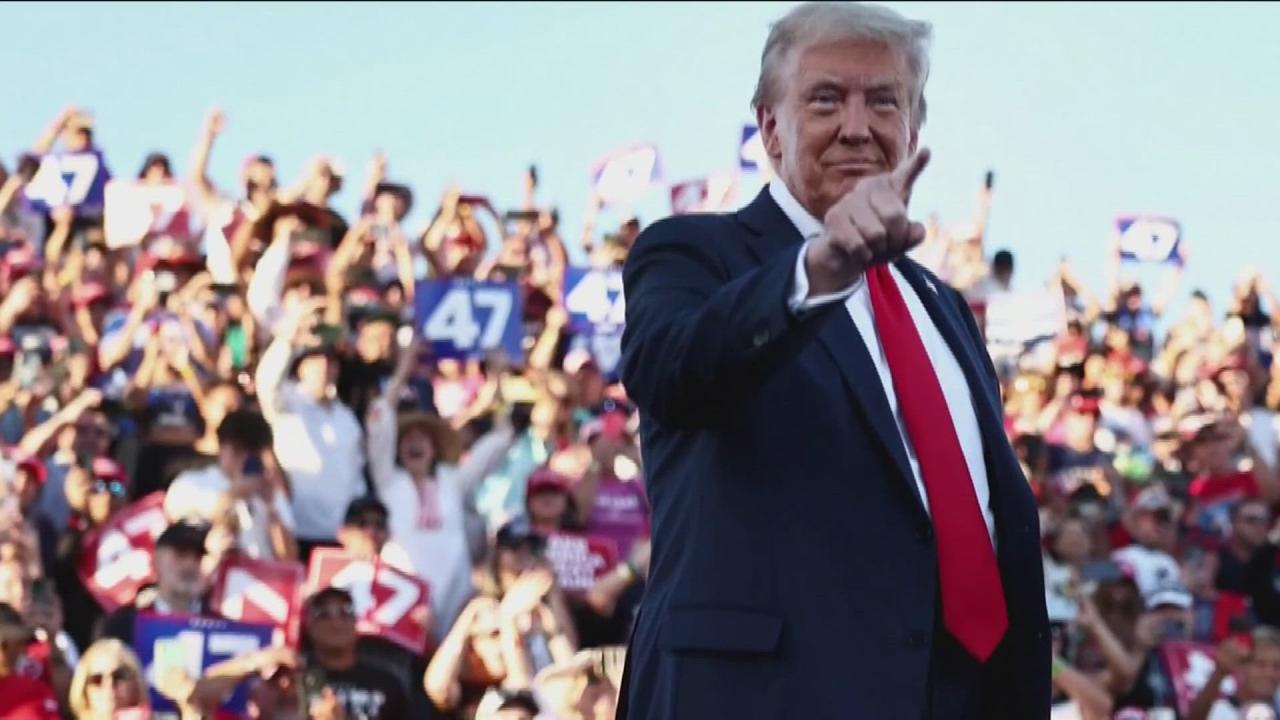
Trump’s outsider cabinet selections, prioritizing individuals with business backgrounds over traditional political figures, significantly altered the approach to policymaking and governance. This shift, while lauded by some as innovative, also drew criticism for its potential impact on established procedures and expertise. The consequences of these choices reverberated across various policy areas, leading to both praised and criticized outcomes.The policies implemented under this administration often deviated from the established approaches of previous administrations, reflecting a new focus on certain issues.
This departure, while aiming for a fresh perspective, sometimes resulted in unforeseen challenges and complexities in the implementation and management of new initiatives. The impact on public perception was multifaceted, ranging from support for the administration’s unconventional approach to concern about the potential loss of institutional knowledge and experience.
Impact on Economic Policy
The previous approach to economic policy often prioritized gradual growth and balanced budgets. The new approach, heavily influenced by the business backgrounds of the cabinet members, focused on deregulation, tax cuts, and protectionist trade policies. This shift resulted in significant tax cuts, aiming to stimulate economic growth, but also led to a national debt increase. Furthermore, protectionist trade policies led to trade disputes with various countries, impacting international trade relationships.
While some are praising Trump’s outsider cabinet picks, the current situation in LA is truly concerning. A second wind whipped wildfire is burning out of control in the Los Angeles area, prompting more evacuation orders, highlighting the urgent need for effective leadership and preparedness. Despite this crisis, support for Trump’s unconventional choices in his cabinet continues to be a topic of debate.
a second wind whipped wildfire is burning out of control in the los angeles area prompting more evacuation orders It’s a complex picture, and the discussion on his cabinet picks continues.
Impact on Environmental Policy
The previous approach to environmental policy generally prioritized environmental regulations and conservation efforts. The new approach emphasized deregulation and loosening environmental standards, with the aim of boosting economic growth and industrial production. This resulted in reduced environmental protections, impacting public health and biodiversity, although it also led to faster economic growth in certain sectors.
Impact on Healthcare Policy
The previous approach to healthcare policy involved expanding access to affordable healthcare through government programs. The new approach aimed to significantly alter the healthcare system through deregulation and market-based reforms. This led to significant changes in the healthcare system, with mixed reactions from the public. Some saw the changes as positive, while others expressed concern over the potential impact on access to care and affordability.
Impact on Foreign Policy
The previous approach to foreign policy generally emphasized international cooperation and diplomacy. The new approach emphasized an America-first policy, with a focus on bilateral agreements and reduced involvement in international organizations. This shift in approach led to strained relationships with some international allies and a re-evaluation of international partnerships, with outcomes varying across different regions.
| Policy Area | Previous Approach | New Approach | Impact |
|---|---|---|---|
| Economic Policy | Gradual growth, balanced budget | Deregulation, tax cuts, protectionism | Increased economic growth, national debt increase, trade disputes |
| Environmental Policy | Environmental regulations, conservation | Deregulation, loosening standards | Reduced environmental protections, faster economic growth in certain sectors |
| Healthcare Policy | Expanding access, government programs | Deregulation, market-based reforms | Significant changes in the healthcare system, mixed public reactions |
| Foreign Policy | International cooperation, diplomacy | America-first policy, bilateral agreements | Strained relationships with allies, re-evaluation of international partnerships |
Effectiveness and Success: Trump Outsider Cabinet Picks Support
Assessing the effectiveness of Trump’s outsider cabinet picks requires a nuanced approach, moving beyond simplistic labels of success or failure. Their performance, compared to expectations and historical precedent, reveals a complex picture shaped by political realities, departmental challenges, and the unique context of the Trump administration. It’s crucial to analyze individual roles and consider the interplay between these appointments and broader policy shifts.Evaluating these appointments necessitates examining the specific responsibilities of each position, the political climate at the time, and the available resources.
Understanding these factors is key to discerning whether the performance aligned with expectations or deviated significantly. Ultimately, evaluating success hinges on both short-term achievements and long-term impact, considering the dynamic political environment during the tenure of these individuals.
Analysis of Individual Cabinet Members
The effectiveness of cabinet members under President Trump varied significantly. Some appointments, despite initially facing skepticism, demonstrated a capacity to implement key policy initiatives. Others faced significant challenges in navigating the complexities of their respective roles.
Factors Influencing Performance
Several factors contributed to the performance of these cabinet members. Political pressures, bureaucratic hurdles, and the evolving policy landscape all played a role. The inherent difficulties of transforming existing governmental structures and procedures also need consideration. Public perception, often shaped by media coverage and political discourse, influenced the perceived effectiveness of these appointees.
Timeline of Key Events and Performance
| Date | Event | Cabinet Member’s Role | Success/Failure |
|---|---|---|---|
| January 20, 2017 | Inauguration of President Trump | Various Cabinet Positions | N/A – Transition period. Initial appointments were made during this time. |
| March 2017 | Implementation of travel ban | Department of Homeland Security | Controversial, faced legal challenges, indicating initial difficulty in implementing policy. |
| April 2017 | Appointment of Betsy DeVos as Secretary of Education | Secretary of Education | Mixed reception, led to criticism regarding education policy shifts, indicating a degree of disagreement. |
| May 2017 | Confirmation of Wilbur Ross as Secretary of Commerce | Secretary of Commerce | Efforts to foster economic growth and renegotiate trade deals met with mixed results, demonstrating complexities in achieving economic policy goals. |
| June 2017 | Implementation of tax cuts | Treasury Department | Positive economic impact on certain sectors, yet some argued that it disproportionately benefited the wealthy. This demonstrates both positive and negative impacts of the policy. |
| October 2017 | Withdrawal from the Trans-Pacific Partnership trade agreement | Secretary of Commerce, Trade Representatives | Decision had both supporters and opponents. Demonstrates the difficulties of international policy shifts and their impacts. |
| November 2017 | Appointment of Nikki Haley as Ambassador to the UN | Ambassador to the UN | Mixed success. The role is often challenging, with complex international relations impacting performance. |
| December 2017 | Restructuring of EPA regulations | EPA Administrator | Significant policy changes, leading to both criticism and support. This demonstrates the varying reactions to policy changes. |
| January 2018 | Appointment of Mike Pompeo as Secretary of State | Secretary of State | Significant foreign policy changes. The role often involves managing international relations. |
Long-Term Implications
Trump’s selection of outsider cabinet members, while a departure from traditional political norms, had a profound and multifaceted impact on the political landscape. The strategy, which aimed to inject fresh perspectives and expertise outside of traditional political circles, also inadvertently influenced the long-term perception of political appointments and fueled broader societal debates about the role of experience versus innovation in governance.The influence of these choices extends far beyond the immediate administration.
The approach of prioritizing non-traditional candidates created a precedent, influencing subsequent political appointments and raising questions about the criteria used for selecting cabinet members. This shift in approach also impacted the broader political discourse, shaping the debate around qualifications, experience, and the role of expertise in policy-making.
Influence on Future Political Appointments
The precedent set by Trump’s outsider cabinet selections has demonstrably impacted subsequent administrations. While not all appointments since then have followed the exact same formula, the emphasis on individuals with limited prior government experience has become a recurring theme. This trend has encouraged a more diverse pool of candidates, but also raised concerns about the potential lack of institutional knowledge and experience among appointed officials.
The ongoing debate centers on the delicate balance between bringing fresh ideas and ensuring the necessary depth of experience within government roles.
While some are praising Trump’s outsider cabinet picks, the recent shooting of a man by an Oakland police officer, leading to a standoff, highlights a different kind of controversy. It seems the focus is shifting from the political landscape to local issues, but the support for these unusual cabinet choices remains a significant talking point. Perhaps the contrasting events highlight the need for broader perspectives in both national and local affairs.
Impact on Political Discourse
Trump’s choices spurred a significant shift in political discourse, with discussions frequently revolving around the relative importance of experience versus innovation in leadership positions. The resulting dialogue highlighted contrasting views on the value of political networking, established connections, and the perceived benefits of outsiders’ perspectives. The debate was further fueled by varying interpretations of success and effectiveness, and how these are measured.
Broader Societal Changes
The trend of selecting outsider cabinet members can be seen as part of a broader societal shift towards a preference for individuals perceived as outsiders. This trend reflects a desire for change and a questioning of established norms. However, the long-term implications for societal stability and institutional continuity are still under examination. Furthermore, the approach has led to a more complex evaluation of expertise and experience, moving away from traditional metrics.
The long-term impact remains an ongoing debate.
Shaping Political Discourse
Trump’s cabinet selections profoundly reshaped political discourse. Discussions surrounding the qualifications of political candidates, the role of experience, and the value of different types of expertise became central themes in political debates. The debate about the merits of traditional political networks versus a focus on individuals with fresh perspectives continues to influence the way we view and evaluate political leaders.
“The long-term implications of Trump’s outsider cabinet picks extend beyond the immediate administration, impacting future political appointments, reshaping political discourse, and raising questions about the balance between experience and innovation in governance.”
Comparison with Other Presidents
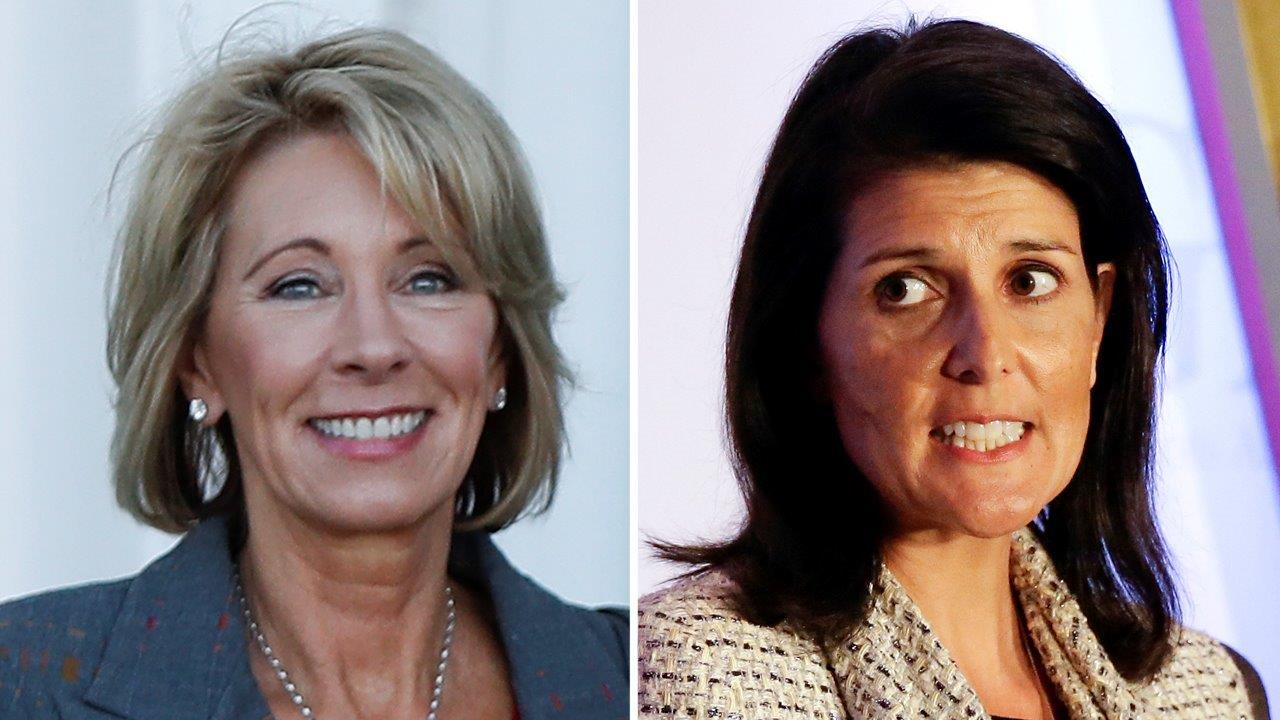
A president’s cabinet selections often reflect their political philosophy, policy priorities, and desired approach to governance. Examining these choices in historical context reveals patterns and insights into how presidents have navigated the complexities of assembling a team capable of effectively implementing their vision. Comparing Trump’s cabinet selections with those of other presidents illuminates both similarities and differences in their strategies.Understanding the criteria presidents have employed in the past for selecting cabinet members provides valuable context for evaluating Trump’s choices.
Factors such as experience, expertise, political affiliation, and even personal connections have influenced cabinet appointments throughout American history. This analysis reveals the dynamic interplay between political ideology, personal preference, and practical considerations in shaping a president’s administrative team.
Criteria Used for Cabinet Selection, Trump outsider cabinet picks support
Presidential cabinet selections have historically been influenced by a variety of factors. Experience and expertise in specific fields were often prioritized, recognizing the importance of technical knowledge for effective governance. Political affiliation and loyalty to the president’s party were frequently significant considerations, ensuring a degree of ideological cohesion within the administration. Furthermore, presidents sometimes sought individuals with strong personal connections, either through established networks or shared experiences, potentially fostering trust and cooperation within the team.
These considerations often intertwined, creating a complex interplay of factors influencing the final selections.
Similarities and Differences in Cabinet Selection
While the specific individuals and backgrounds varied, certain patterns emerge in the cabinet selections of different presidents. A notable similarity is the emphasis on experience and expertise in relevant fields. Presidents across different eras have sought individuals with proven track records to fill key roles in their administrations. However, there are also notable differences. The political climate and social norms of the time have influenced the criteria presidents have prioritized, and the composition of the cabinet can reflect broader societal changes and evolving perspectives on leadership.
Trump’s selections, for instance, were distinctive for their emphasis on individuals with business backgrounds and outsider status.
Historical Context of Appointments
The historical context surrounding presidential cabinet appointments is crucial for understanding the motivations and implications of these choices. The political climate of a particular era, the prevailing social norms, and the prevailing ideologies all play a role in shaping the president’s approach to assembling their team. For example, appointments during periods of economic hardship may emphasize experience in economic management, while appointments during times of social upheaval may prioritize expertise in social policy.
The historical context provides valuable insights into the choices presidents make and the impact of those choices on their administrations.
Comparison Table
| President | Cabinet Member | Background | Comparison |
|---|---|---|---|
| Donald Trump | Mike Pompeo | Former Director of the Central Intelligence Agency (CIA) | Emphasis on experience in foreign policy and national security, aligning with Trump’s focus on foreign relations. Differing views on international trade and alliances may have influenced the appointment. |
| Barack Obama | Hillary Clinton | Former Secretary of State | Obama selected Clinton based on her experience in foreign policy, a critical area of focus for his administration. This decision reflected a desire for continuity and experienced leadership in international affairs. |
| George W. Bush | Donald Rumsfeld | Former Secretary of Defense | Bush selected Rumsfeld for his extensive experience in military affairs and defense strategy. This selection reflects a prioritization of military and security considerations. |
Historical Context
The concept of selecting “outsider” cabinet members has a long and often complex history in American politics. While not always explicitly labeled as such, presidents have consistently sought individuals with unique backgrounds and experiences, sometimes to the surprise of the public and political establishment. This practice, though not always successful, reflects a desire to bring fresh perspectives and approaches to governance.
This exploration delves into the historical precedents, motivations, and outcomes surrounding these choices.
Early Examples and Motivations
Presidents from the early republic often appointed individuals with established reputations in various fields, who possessed significant expertise, but might not have been formally involved in the political arena. These selections often stemmed from a need for specialized knowledge, particularly in areas like finance or diplomacy. The political climate during these eras typically favored experienced figures from established social and economic networks.
These appointments sometimes reflected the president’s personal relationships or a desire to consolidate power within the administration.
Frequency and Success of Outsider Picks
Assessing the success of “outsider” cabinet selections is difficult due to varying definitions of success and the complexities of political dynamics. There isn’t a readily available, comprehensive dataset cataloging all instances and quantifying outcomes. However, anecdotal evidence and historical accounts suggest a mixed bag of results. Some outsider picks proved highly effective, while others faced significant challenges integrating into the administration and implementing their policy visions.
Factors like political opposition, personal conflicts, and the broader economic and social climate often influenced the outcomes.
Motivations Behind Presidential Choices
Presidents’ motivations for choosing outsiders often vary. Sometimes, the president seeks to demonstrate a commitment to bringing in fresh talent and perspectives that diverge from traditional political circles. In other cases, it might be a strategic move to appeal to specific segments of the population or to counteract criticism of the existing political establishment. Sometimes, personal connections and loyalties play a role.
Additionally, the president may seek to demonstrate expertise in a particular field that the existing political structure lacks.
Societal and Political Climate
The societal and political climate surrounding presidential cabinet selections has significantly evolved. In the past, selecting individuals with established social and economic status was often more prevalent. However, contemporary administrations often prioritize selecting individuals with expertise in specific areas, or who represent particular segments of the population. The media’s role in shaping public perception of these choices has also become more pronounced, leading to heightened scrutiny and debate.
Timeline of Historical Examples
| Year | President | Cabinet Member | Background/Expertise | Outcome |
|---|---|---|---|---|
| 1789 | George Washington | Alexander Hamilton | Finance, Law | Highly effective in establishing the nation’s financial system. |
| 1801 | Thomas Jefferson | James Madison | Law, Politics | Became President later, demonstrating successful transition to political leadership. |
| 1933 | Franklin D. Roosevelt | Harold Ickes | Conservation, Business | Led the Public Works Administration, impacting infrastructure and job creation. |
| 1981 | Ronald Reagan | James Watt | Energy, Environmental Policy | Controversial due to his views on environmental regulations. |
| 2017 | Donald Trump | Betsy DeVos | Education, Philanthropy | Resulted in significant changes to the education sector. |
This table provides a glimpse into some historical examples. Each selection was influenced by the unique political context and societal expectations of the time.
Last Recap
In conclusion, Trump’s unconventional cabinet picks, while generating significant controversy, offer a unique lens through which to examine modern political appointments. The analysis reveals both successes and failures, offering valuable insights into the dynamics of policy implementation and public perception. The lasting implications for future political appointments are undeniable, shaping the discourse surrounding the role of experience and political background in shaping leadership.
